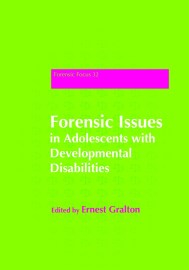Therapeutic Relationships with Offenders
On sale
15th December 2008
Price: £43.99
Working in any area of mental health nursing presents complex issues regarding the nurse-patient relationship. For those working in prolonged clinical contact with offenders, relationships with patients and colleagues can be particularly emotionally intense and sometimes difficult to express. This book attempts to understand and articulate the emotional labour of forensic nursing and explores the challenge of establishing and maintaining therapeutic relationships with offenders.
The first book to consider the emotional and relational component of forensic mental health nursing, the chapters cover a number of specialist forensic areas from this psychodynamic perspective, such as women’s services, services for people with personality disorders, intensive care, high security psychiatric hospitals, medium secure units and services for adolescent offenders. A chapter on therapeutic communities is also included, along with chapters on challenging relational phenomena such as working with hate and the difficulties of managing difference when working in environments that produce high levels of anxiety.
Therapeutic Relationships with Offenders provides essential information for mental health nurses working in the forensic field and will be of interest to any professionals working with challenging populations and people with personality disorders.
The first book to consider the emotional and relational component of forensic mental health nursing, the chapters cover a number of specialist forensic areas from this psychodynamic perspective, such as women’s services, services for people with personality disorders, intensive care, high security psychiatric hospitals, medium secure units and services for adolescent offenders. A chapter on therapeutic communities is also included, along with chapters on challenging relational phenomena such as working with hate and the difficulties of managing difference when working in environments that produce high levels of anxiety.
Therapeutic Relationships with Offenders provides essential information for mental health nurses working in the forensic field and will be of interest to any professionals working with challenging populations and people with personality disorders.
Newsletter Signup
By clicking ‘Sign Up,’ I acknowledge that I have read and agree to Hachette Book Group’s Privacy Policy and Terms of Use
Reviews
This collection of essays provides a fascinating insight into the role of the Forensic Mental Health Nurse... Reading the book from a probation perspective, the resonances are multiple, and carry some salutary and timely lessons for the service... The probation service charges itself with promoting thoughtful action in those it supervises; what this book illustrates so well is the simple fact that a prerequisite to achieving this aim is allowing practitioners the time to think, feel and behave thoughtfully in their relationships with offenders.























